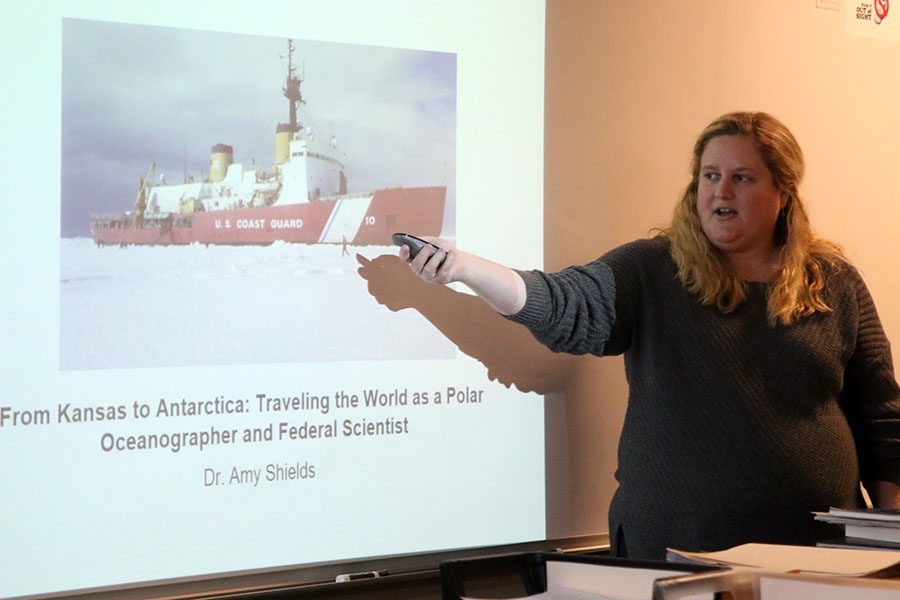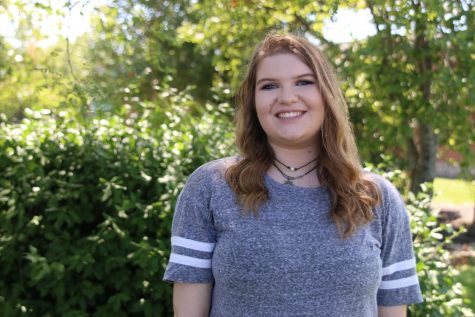Marine biology club welcomes speaker
Marine Biologist Amy Shields gives presentation on her experiences in the field
By Sarah Morgan
Gesturing towards the board, Dr. Amy Shields uses a powerpoint as an aid to speak to the Marine Biology club about her time in Antartica on Wednesday, February 8.
February 9, 2017
The Marine Biology club hosted speaker Dr. Amy Shields on Wednesday, Feb. 8, who shared her experiences in working as a oceanographer in Antarctica and what she endured on her journey to get there.
According to sophomore Allie Sagi, the purpose of Shield’s talk was to introduce marine biology and a future in studying it to students.
“The purpose of her coming in today was to inspire us to go into marine biology of oceanography,” Sagi said. “My favorite part was learning about how she survived in Antarctica and how she traveled to study oceanography.”
Sophomore Jacob Hoffman enjoyed the presentation and the information Shields had to offer.
“It was really cool. A lot of her facts were really fascinating, it kind of opened my eyes for what I could do with marine biology in the future,” Hoffman said. “My favorite part was her explaining all of the cool experiences she had and what she learned over in Antarctica.”
Having no prior knowledge about the field, Hoffman was surprised and curious about what it takes to be a marine biologist.
“One thing that I learned today is that you don’t just have to study marine biology,” Hoffman said. “You can go into other fields like oceanography. If you study biology you can go into other sciences too. I didn’t even really know you could study marine biology in Antarctica, so I learned that too.”
Not only was the speech entertaining for Sagi, but it also helped open her eyes to what a real life career in science would be like.
“I learned a lot of things that I didn’t know before that is beneficial to know about college in the future,” Sagi said. “I learned how Antarctica functions with the labs and how they survive down there. I also learned what the scientists do and how they collect samples and how they study.”











